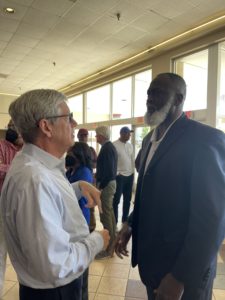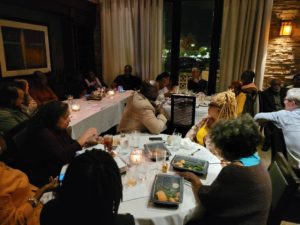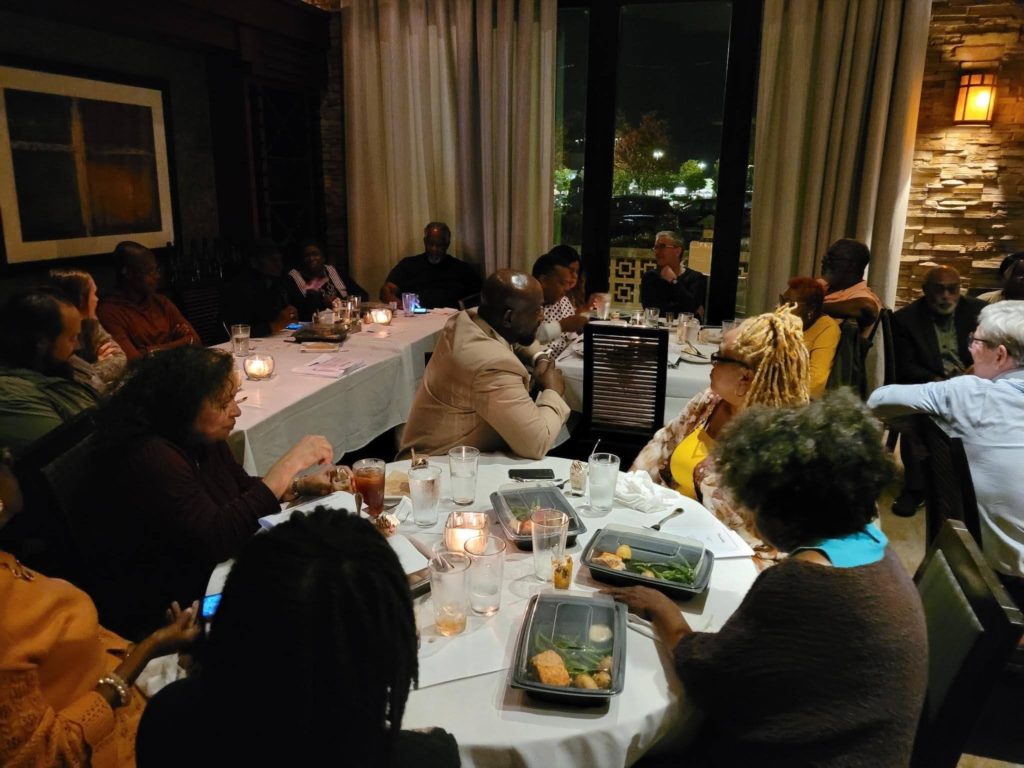By Dr. Travis Coblentz
On a recent evening in late October, Movement Birmingham [and Tactical Faith] gathered together a group to watch the 2022 film Till. The group consisted of a number of African-American pastors and wives, along with various other leaders, pastors, and educators in the Birmingham area.
The film presents the suffering and strength of Mamie Till and the killing of her son, Emmett, which took place in 1955. It is a story of pain, loss, injustice, and that strength of character that helps a nation sleepy in its indifference to awaken to the horror of its prejudice.

Till is not an enjoyable movie. A dark past is made manifest in the character of Mamie. The film constantly focuses on close-ups of Mamie’s agonized face as she struggles with fear, loss, and anger. And the unnerving silence that is only sparsely broken by music and anguished cries, is perhaps a reminder of the silence of those who simply looked on or looked away without crying out on behalf of our brothers and sisters.
After the film, we shared a meal at a nearby restaurant. During dinner, some of us talked with friends and some of us made new friends. The heaviness of the film weighed upon us and we talked about the pain, injustice, despair, and hope it inspired within us. How is it that we are capable of such evil? How can we avoid these faults of our ancestors? What residue and echoes of this evil remains with us today? What are our faults and what is our hope?
 I was not privy to all the discussions, but various of my brothers and sisters spoke up. One spoke of the danger of the anger that could arise from the film and how we need to approach these painful events with care so that we can look up such injustice and evil with an eye to bearing the Kingdom of God. Another spoke of the meaning of the Hebrew word for “justice” (mishpat)—something that is not mere retribution nor repayment for wrongs, but rather a system that is filled with flourishing and peace. Some shared personal stories of good changes that have taken place, concerns for the present, and again voiced that element that a communion of the saints clings to: Hope.
I was not privy to all the discussions, but various of my brothers and sisters spoke up. One spoke of the danger of the anger that could arise from the film and how we need to approach these painful events with care so that we can look up such injustice and evil with an eye to bearing the Kingdom of God. Another spoke of the meaning of the Hebrew word for “justice” (mishpat)—something that is not mere retribution nor repayment for wrongs, but rather a system that is filled with flourishing and peace. Some shared personal stories of good changes that have taken place, concerns for the present, and again voiced that element that a communion of the saints clings to: Hope.
Specifically, the hope that comes in the name of Jesus and the gospel He announced and paid for with His own blood and achieved with His glorious resurrection. Jesus Himself carried in His own flesh the injustice of the suffering of the innocent. He was rejected, mocked, hated, abused, and finally killed. Such terrible injustice moves us to rage and despair. But Jesus rose. Death was overcome. And along with death, our sin—that sin that twists and constricts us in ever greater injustice and despair—was destroyed.
We ended with a shared goal of remaining connect to one another in fellowship, in prayer, and in purpose that this gospel of Jesus might bring healing, justice, and peace to Birmingham and beyond.

